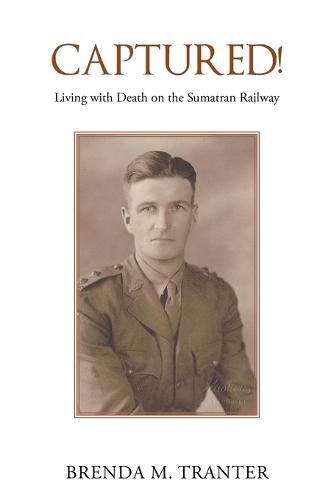Readings Newsletter
Become a Readings Member to make your shopping experience even easier.
Sign in or sign up for free!
You’re not far away from qualifying for FREE standard shipping within Australia
You’ve qualified for FREE standard shipping within Australia
The cart is loading…






This title is printed to order. This book may have been self-published. If so, we cannot guarantee the quality of the content. In the main most books will have gone through the editing process however some may not. We therefore suggest that you be aware of this before ordering this book. If in doubt check either the author or publisher’s details as we are unable to accept any returns unless they are faulty. Please contact us if you have any questions.
Australian Lieutenant, A.E. Tranter, from Heathcote, Victoria, (Australia) spends time in Malaya training young soldiers during the waiting period prior to WW2 in Asia. He survives the battle against the Japanese in Muar and the fall of Singapore, before escaping by boat to the wilds of Sumatra. However, his luck fails and he becomes one of the thousands of prisoners of war in the slave labour camps in Sumatra. He writes a tender book for his little daughter which he manages to keep hidden from the guards throughout his ordeal. Remarkably the book is all about the pleasant and beautiful things he has seen and learned in his enforced travel, even if witnessed from the heat and stench of locked box cars
… in spite of the discomfort, we saw much that was interesting and beautiful . Despite this long ordeal, his writing conveys a message of tolerance, understanding and responsibility. Tranter is amongst those put to work building a road through the jungle in Atjeh, then later, the second death railway - the Pakenbaroe/Moeara Railway, ironically completed on the day WW2 ended; never used and now forgotten in Australia by all but a few. Here the Japanese and Koreans’ treatment of the prisoners becomes increasingly brutal with death and disease common, especially amongst
the Romushas - Asian enforced labourers - 80 000 of whom die. Meanwhile his little daughter is growing up in his hometown, under her mother’s care, both unaware of her father’s whereabouts.
$9.00 standard shipping within Australia
FREE standard shipping within Australia for orders over $100.00
Express & International shipping calculated at checkout
This title is printed to order. This book may have been self-published. If so, we cannot guarantee the quality of the content. In the main most books will have gone through the editing process however some may not. We therefore suggest that you be aware of this before ordering this book. If in doubt check either the author or publisher’s details as we are unable to accept any returns unless they are faulty. Please contact us if you have any questions.
Australian Lieutenant, A.E. Tranter, from Heathcote, Victoria, (Australia) spends time in Malaya training young soldiers during the waiting period prior to WW2 in Asia. He survives the battle against the Japanese in Muar and the fall of Singapore, before escaping by boat to the wilds of Sumatra. However, his luck fails and he becomes one of the thousands of prisoners of war in the slave labour camps in Sumatra. He writes a tender book for his little daughter which he manages to keep hidden from the guards throughout his ordeal. Remarkably the book is all about the pleasant and beautiful things he has seen and learned in his enforced travel, even if witnessed from the heat and stench of locked box cars
… in spite of the discomfort, we saw much that was interesting and beautiful . Despite this long ordeal, his writing conveys a message of tolerance, understanding and responsibility. Tranter is amongst those put to work building a road through the jungle in Atjeh, then later, the second death railway - the Pakenbaroe/Moeara Railway, ironically completed on the day WW2 ended; never used and now forgotten in Australia by all but a few. Here the Japanese and Koreans’ treatment of the prisoners becomes increasingly brutal with death and disease common, especially amongst
the Romushas - Asian enforced labourers - 80 000 of whom die. Meanwhile his little daughter is growing up in his hometown, under her mother’s care, both unaware of her father’s whereabouts.